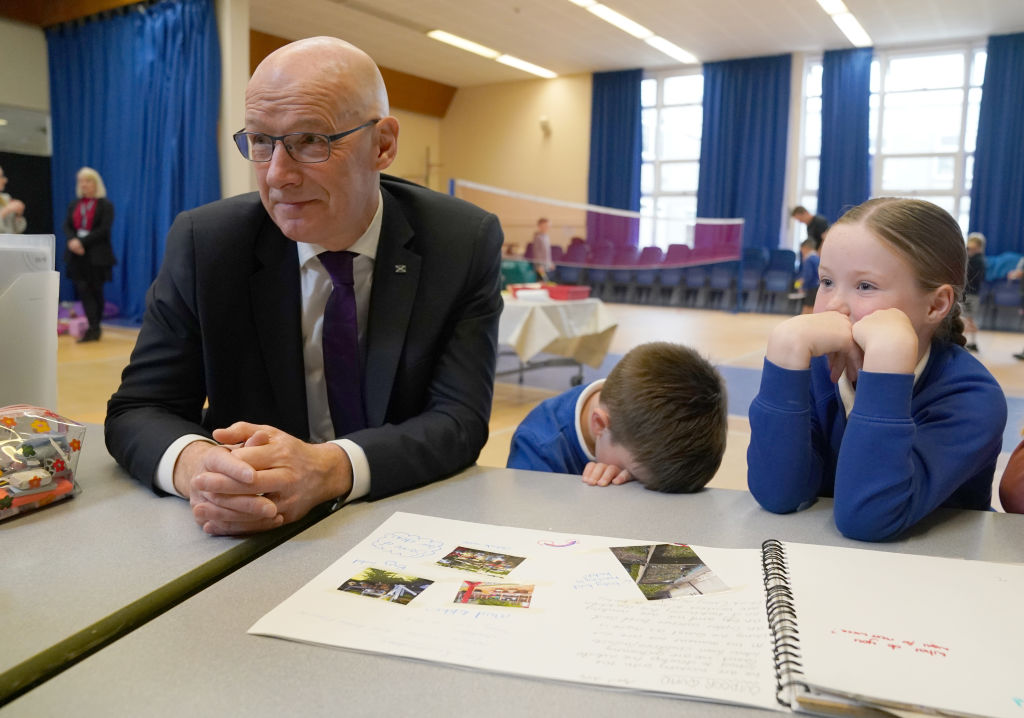The SNP’s record on education in Scotland is showing no sign of improving. New figures this week reveal that more than 40% of the country’s secondary pupils are still persistently absent from school, meaning that they miss more than 10% of lessons over the academic year. According to the annual Scottish Household Survey, public satisfaction with schools in Scotland has hit a record low, while the proportion of pupils who are severely absent, meaning that they miss more than 50% of lessons, is at an all-time high.
There are many potential reasons for pupils missing school: mental health problems, special educational needs, poverty exacerbated by the cost-of-living crisis, unauthorised holidays. However, these are all challenges faced by English pupils as well, and therefore do not explain why the proportion of persistently absent pupils is almost double in Scotland what it is in England.
Another reason to blame, though, which is more particular to Scotland, is what the Scottish Secondary Teachers’ Association calls the “aggression epidemic”. The sector is facing a crisis of poor behaviour, with a survey of almost 900 schools last year finding that two-thirds reported violent and aggressive incidents taking place on a daily basis. Another report from 2023 found that within the last week 67% of teachers had encountered verbal abuse between pupils, 59% had dealt with physical aggression, 43% had experienced physical violence, and 24% reported abuse towards special educational needs students. On the flip side, in 2022 school exclusions reached their lowest level since records began, while only 60% of teachers claim to use detentions at least “sometimes”.
Many are quick to claim that this deterioration in pupil behaviour is yet another hangover from Covid, but it is also the result of the disastrous “restorative justice” policy that has been in place since 2016. Education Scotland claims punishing pupils who misbehave “can be ineffective, dangerous, breed resentment and make situations worse”, and so has instead advised teachers to use constructive conversations and encourage pupils “to hear about and face up to the harm and distress they have caused”.
A relationships-based, non-punitive approach to behaviour management may sound compassionate, but in reality teachers do not have the training or time to implement this “conferencing” properly, and feel unable to set effective boundaries. Students quickly learn that there are no real consequences to their disruptive behaviour, and this has led to a situation in which half of Scottish parents now say they do not feel their child is safe in school.
Compare this to the “zero tolerance” approaches to behaviour at English institutions such as Michaela Community School, dubbed the “strictest school in Britain”, or King Solomon Academy. Both have persistent absence levels well below national proportions, despite also having disproportionately high numbers of students from disadvantaged backgrounds. If the SNP wants to see attendance levels in schools improve, then it has to ensure students feel safe in the classroom. Pupils must be able to trust schools to provide them with a calm, orderly, positive environment that they may not get elsewhere. This will never happen unless Education Scotland changes its approach to behaviour, and stops sacrificing the educational experience of the majority in order to protect the disruptive minority.











Join the discussion
Join like minded readers that support our journalism by becoming a paid subscriber
To join the discussion in the comments, become a paid subscriber.
Join like minded readers that support our journalism, read unlimited articles and enjoy other subscriber-only benefits.
Subscribe